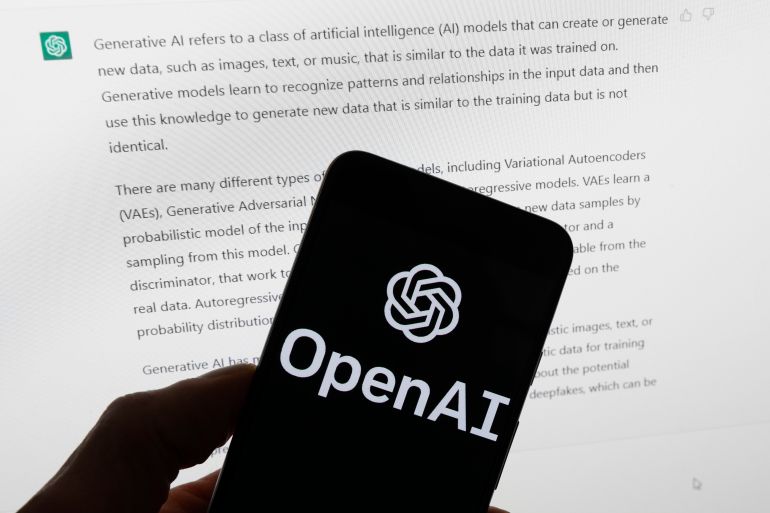ChatGPT can now browse the internet for updated information
OpenAI has reintroduced the browsing feature to ChatGPT after temporarily disabling it in July.

ChatGPT can now browse the internet to provide users with current information, its parent company OpenAI has announced.
The chatbot was previously trained to use data up to September 2021 and was unable to provide real-time information.
Keep reading
list of 4 itemsWhat role do US tech giants play in powering Israeli war crimes?
Why is Elon Musk feuding with Australia and Brazil over free speech?
Microsoft, Google post double-digit profit rises, boosting case for AI
On Wednesday, Microsoft-backed OpenAI announced on X, formerly Twitter, that the new update allows it to move past the September 2021 cutoff and access current information on the internet.
ChatGPT can now browse the internet to provide you with current and authoritative information, complete with direct links to sources. It is no longer limited to data before September 2021. pic.twitter.com/pyj8a9HWkB
— OpenAI (@OpenAI) September 27, 2023
OpenAI said that the “Browse with Bing” option is now available to users of the paid versions of ChatGPT, adding “we’ll expand to all users soon”.
OpenAI had earlier tested a feature that allowed users to access the latest information through the Bing search engine within its premium ChatGPT Plus offering.
This feature was integrated in May but disabled two months later over fears that it could allow users to bypass paywalls.
The new integration works similarly to Bard, a chatbot developed and launched by Google in March this year.
“What OpenAI is trying to do is get in on Google’s market share,” Alex Hanna, director of research at the Distributed AI Research Institute and former research scientist at Ethical AI at Google, told Al Jazeera.
Privacy concerns
There were also privacy concerns about accessing real-time information: The bot could pick up harmful material, misinformation, and copyrighted content online and display it to users, the BBC has earlier reported.
Additionally, users have to enable their chat history to allow the new browser plugin to work, which means opting to share their personal data with the model.
“People are at the risk of their legal data being scraped. Research has shown that with certain kinds of prompts, certain kinds of private information has been leaked through these different systems,” said Hanna. “We don’t know what is being leaked just because of how private these companies have kept their data sources.”
OpenAI said the latest feature would allow websites to control how ChatGPT can interact with them.
Hanna said that ChatGPT can display hallucinations, or misinformation and inaccurate information.
She added that AI tools and search engines perpetuate racial and gender biases, as proven by research including Safiya Noble’s book Algorithms of Oppression which shows how search engine results for queries about Black women and white women differ, exposing racism and sexism within the algorithms.
Earlier this week, OpenAI introduced voice and image features to the chatbot, earning mixed reactions online.
While some users celebrated the updates, others were concerned about AI becoming too human-like.
Some users brought up how the updates might replace smaller AI startups and software engineers while others discouraged the use of ChatGPT, raising concerns about the recent lawsuits against OpenAI’s violation of copyright laws and infringement of intellectual property rights.